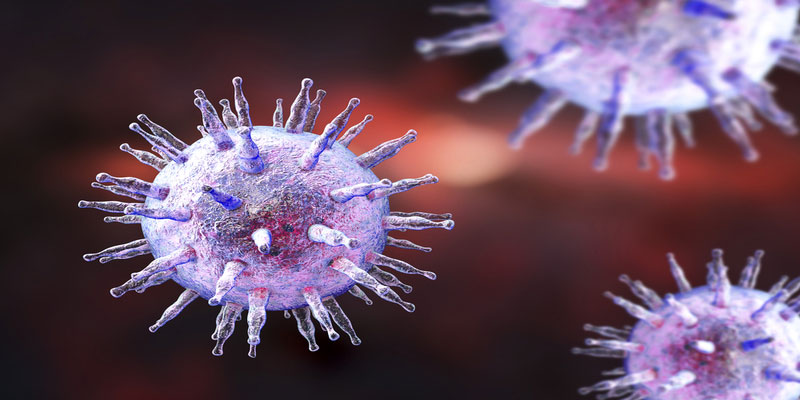Hypokalemia is when the blood potassium level is below the normal range. Potassium is important because it helps keep the body's muscles, and heart working properly and controls how much water the body retains. Too little potassium in the body may cause several unpleasant physical and mental side effects. Weak muscles, paralysis, and renal damage are just some of the more significant problems that may result from chronically low potassium levels. Potassium deficiency may be fatal if not handled. Potassium deficiency may result from poor dietary intake, prescription side effects, or illness. Sweating excessively, having diarrhea, or throwing up might also bring this on.
Symptoms Of Low Potassium
Hypokalemia may induce many symptoms depending on how much potassium is lost and what causes it. Some typical low potassium signs include:
- Muscular weakness and weariness may result from a potassium deficit since the mineral is essential for proper muscle function.
- Muscle cramps and spasms may occur everywhere in the body, but low potassium levels are particularly linked to episodes of pain in the legs, arms, and abdomen.
- Arrhythmias: Potassium helps keep the heart's electrical system working smoothly. Low potassium levels may produce vibrations due to an irregular heartbeat.
- Potassium helps prevent constipation by keeping the bowels moving normally. Constipation is a common symptom of a deficit.
- Arrhythmia, often known as an irregular heartbeat, may be brought on by a deficiency of the electrolyte potassium. This is a potentially lethal situation.
- Weak nerves may lead to numbness and tingling. Therefore, getting enough potassium is crucial. Sensations of numbness and tingling in the limbs may indicate a deficit.
- Potassium deficiency may lead to respiratory distress and make breathing hard in extreme circumstances.
Causes Of Low Potassium

Possible reasons for low potassium levels might be found in the:
- Diuretics, commonly called "water pills," stimulate the kidneys to generate more pee. They are often prescribed for the treatment of hypertension and cardiomyopathy. But they may also induce potassium loss, which can result in hypokalemia.
- Addiction to alcoholic beverages may result in hypokalemia due to excessive potassium loss.
- Dietary deficiency in potassium and other minerals might result from malnutrition or malnutrition.
- Chronic kidney illness, diabetes, and adrenal gland abnormalities may all lead to excessive potassium loss.
- Medication use: Steroids and antibiotics, for example, might prevent the body from absorbing or retaining potassium, leading to a deficit.
Diagnosis Of Low Potassium
Blood tests measuring potassium levels are the standard method used by doctors to identify low potassium levels in patients. The test results will reveal whether the patient's potassium levels are normal or if a shortfall exists.
Treatment Of Low Potassium
If you have low potassium levels, the therapy you get will be determined by the root cause of your condition and the degree of your shortage. Increasing the consumption of potassium-rich foods or taking potassium supplements may be enough to restore normal levels in moderate instances. Bananas, avocados, sweet potatoes, and green leafy vegetables are all excellent food sources of potassium. Intravenous (IV) potassium replacement may be recommended in more severe situations or when a medical ailment or drug is suspected as the underlying cause. Here, potassium is injected into the veins directly. Potassium may be administered intravenously (IV) at a medical facility or as an outpatient.
Prevention Of Low Potassium

There are several things you can do to keep your potassium levels from dropping too low:
- Please include a wide range of fruits and vegetables in your diet since they are rich in potassium and may help you achieve a healthy potassium balance. Fruits and vegetables that fit this description include bananas, avocados, sweet potatoes, and dark greens.
- Diuretics, sometimes called "water pills," may lead to potassium loss. Thus, taking them with caution is advised. Consult your doctor about the best strategies to reduce potassium loss while using diuretics.
- Staying hydrated is especially important if you're trying to prevent potassium loss, which may happen when you're dehydrated. Make sure to stay hydrated, particularly if you're doing strenuous physical activity or live somewhere hot and muggy.
- To prevent potassium loss, stay away from booze and coffee. Use moderation if you decide to drink these drinks.
- If you are taking any drugs that might influence your potassium levels, be sure to address this with your doctor. Learn how to control your potassium levels and avoid issues with their guidance.
Conclusion
Hypokalemia, caused by low potassium levels, may have far-reaching effects on bodily functions. Weakness and exhaustion, cramps and spasms, heart palpitations, constipation, an irregular heartbeat, numbness and tingling, and breathing problems indicate low potassium. Depending on the root cause and the degree of insufficiency, the severity of the symptoms might range from mild to severe. If you have any of these symptoms, you should visit a doctor immediately since untreated low potassium levels may be fatal.




